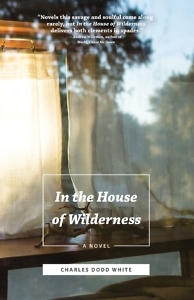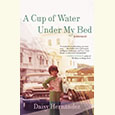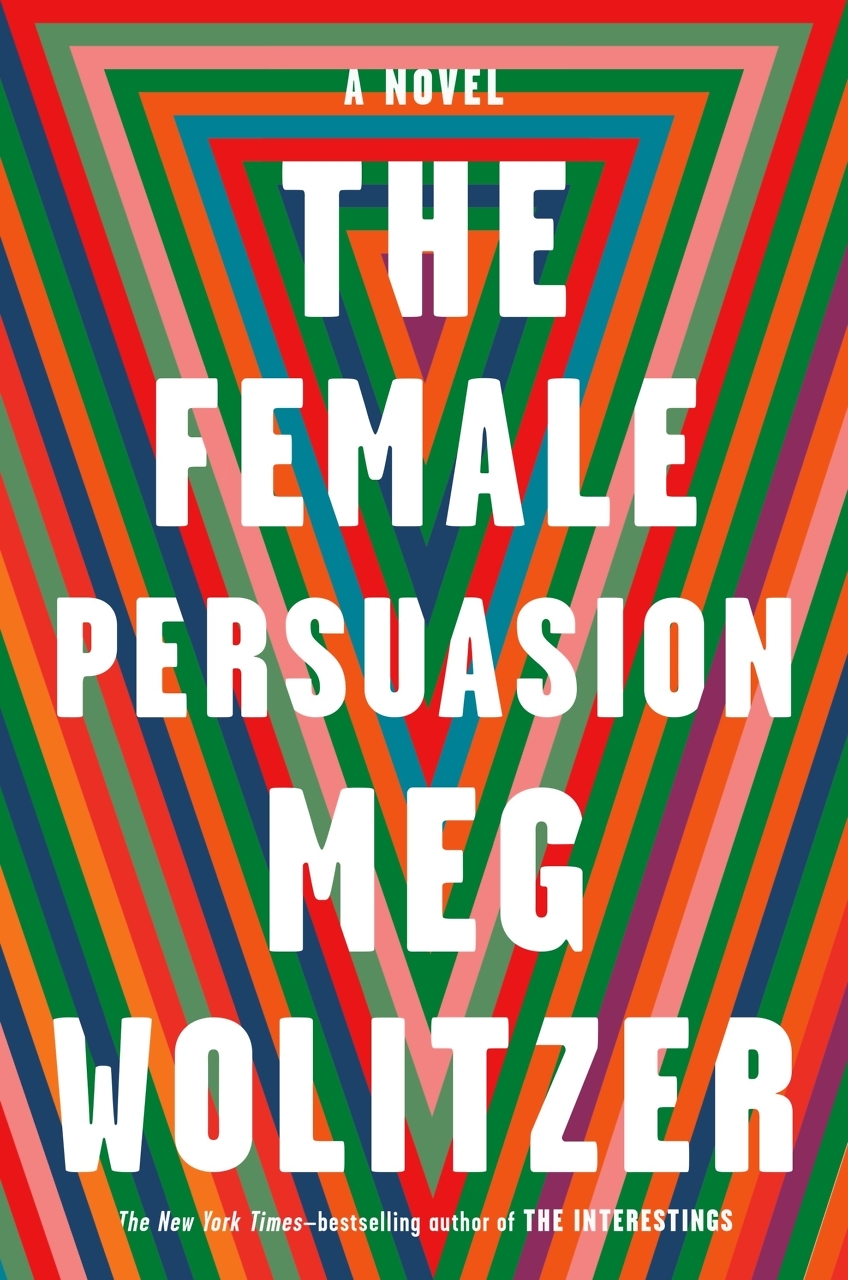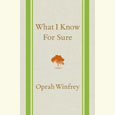This New Kind of Survival
The outcasts in Charles Dodd White’s In The House of Wilderness search for refuge in the East Tennessee mountains
Charles Dodd White’s mesmerizing new novel, In The House of Wilderness, opens with a mysterious parable evoking innocence and danger. We learn of a strange idyll undertaken by three outcasts who bind themselves together through choices that pull them increasingly further away from civilization: “They called themselves Wolf, Winter, and Rain. The names they’d taken when they met and fell in love in the forest, married one another by their own decree before they came back to the cities where they’d learned this new kind of survival and what it exacted.”
 For Rain, the young woman made most vulnerable by this misadventure in plural marriage, inventing methods of survival is nothing new. After running away from a neglectful, exploitative household, she soon encounters Wolf, a troubled man with charisma, and his warm, willing partner, Winter, who becomes both sister and lover to Rain. Wolf promises his women a utopian vision of self-sufficiency, though he’s not above pimping them out to afford shelter from the cold.
For Rain, the young woman made most vulnerable by this misadventure in plural marriage, inventing methods of survival is nothing new. After running away from a neglectful, exploitative household, she soon encounters Wolf, a troubled man with charisma, and his warm, willing partner, Winter, who becomes both sister and lover to Rain. Wolf promises his women a utopian vision of self-sufficiency, though he’s not above pimping them out to afford shelter from the cold.
Come spring, they strike off into the East Tennessee mountains, enduring the elements and squatting in the abandoned ruins of old houses, where they’ll seek “the secret heart of contentment.” What they find is far darker than any of them has envisioned.
Stratton Bryant, the owner of the half-collapsed cabin in which they’ve settled, has also become estranged from the rhythms and obligations of everyday life: he has recently lost his wife, Liza, a photographer noted for her unflinching portraits of the rural lives around them. Sliding into a drinking problem on the wave of his grief, Stratton wants nothing more than to sell the run-down property he shared with his wife. Beyond that, he has no idea what else to do with his life. Once Stratton and Rain collide, the simmering crises of both their lives begin to boil over, pushing them both into reckoning with what Rain has come to think of as “the good deep pain of being home.”
 White, who lives in East Tennessee, commands an unusual level of skill and depth when writing about his characters’ relationship to the natural world. Stratton observes sunrise as “the old parchment gray of the hour filtering in.” A group of kayakers “slip into the water with the strange grace of smoke.” Rain hikes through “a kaleidoscope of the woodland, a flex of shadow that manifests the thousand variances of time and light.” Such scenes epitomize what Flannery O’Connor demanded that fiction writers do—“to convince through the senses.” Our loyalty to these characters arises from their close attention to the life of the forest around them. Because Stratton and Rain are finely attuned to the rhythms of nature, we then attune ourselves to them.
White, who lives in East Tennessee, commands an unusual level of skill and depth when writing about his characters’ relationship to the natural world. Stratton observes sunrise as “the old parchment gray of the hour filtering in.” A group of kayakers “slip into the water with the strange grace of smoke.” Rain hikes through “a kaleidoscope of the woodland, a flex of shadow that manifests the thousand variances of time and light.” Such scenes epitomize what Flannery O’Connor demanded that fiction writers do—“to convince through the senses.” Our loyalty to these characters arises from their close attention to the life of the forest around them. Because Stratton and Rain are finely attuned to the rhythms of nature, we then attune ourselves to them.
White’s lush, unhurried style also serves his storytelling. Though we spend many pages learning the details of how these characters navigate and contemplate their mountainous setting, as well as how they grapple with their own troubled histories and fractured beliefs, the novel is superbly paced, its plot unfolding with mystery and suspense. From its brutal yet compassionate heart, In The House of Wilderness pulses forward with longing and danger.

Emily Choate holds an M.F.A. from Sarah Lawrence College. Her fiction has been published in Shenandoah, The Florida Review, Tupelo Quarterly, and The Double Dealer, and her nonfiction has appeared in Yemassee, Late Night Library, and elsewhere. She lives in Nashville, where she’s working on a novel.


